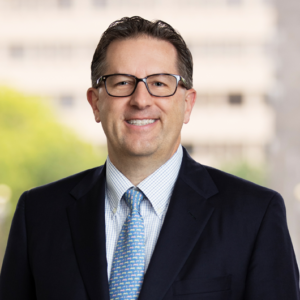On January 29, 2019, the Department of Health and Human Services Office of Inspector General (“OIG”) published Advisory Opinion 19-02, which approved an arrangement allowing a pharmaceutical manufacturer to loan smartphones to financially needy patients in order to assist with medication adherence. OIG stated that it would not impose sanctions against the parties for violations of the Anti-Kickback Statute (“AKS”) because the arrangement contains appropriate safeguards or the Civil Monetary Penalties law (“CMP”) because the arrangement complies with the applicable CMP exception.
Background
The requesting party (the “Requestor”) is a pharmaceutical manufacturer that has received U.S. Food & Drug Administration (“FDA”) approval for a Digital Medicine version of one of its antipsychotic drugs (“Digital Medicine”), which consists of a tablet of the drug with an ingestible sensor. The sensor transmits a signal when the medication is taken, detectable by a wearable patch on the patient’s abdomen. The signal is then transmitted to a smartphone application on the patient’s phone (“App”) and, with the patient’s consent, can be transmitted to the patient’s health care provider. Although not yet proven, it is anticipated that the ability of the Digital Medicine to track the patient’s medication compliance will significantly improve the patient’s health condition, and access to the App is critical to the effectiveness of the Digital Medicine.
Proposed Arrangement
The Requestor has proposed to loan smartphones with limited functionality (“Loaner Device”) to financially needy patients while they are prescribed the Digital Medicine (“Proposed Arrangement”). The Loaner Devices would only be given to patients who meet the following criteria:
- Have an on-label use prescription for the Digital Medicine;
- Satisfy any prior authorization required by the patient’s insurer;
- Have an annual income below a certain percentage of the federal poverty level;
- Do not possess a device capable of running the App; and
- Are permanent residents or citizens of the United States.
The Requestor has stated that it would contract with a specialty pharmacy to verify patient eligibility and that this specialty pharmacy would also provide the Loaner Device to eligible patients. The Proposed Arrangement would not be advertised to patients. Instead, the Requestor would give potential prescribers of the Digital Medicine information regarding how to screen patients in an appropriate manner for this program. Prescribers would not be compensated by the Requestor in any manner for assisting in the completion of the necessary patient enrollment forms. Prescribers of the Digital Medicine would not receive additional reimbursement for prescribing this drug versus any other treatments.
The Loaner Device would be a refurbished, older model iPhone or Android device and charger. The Loaner Device would come with the App preloaded and would be capable of making domestic telephone calls. All other features of the Loaner Device would be disabled, including text messaging, web browsing, music applications, camera, games, etc.
Patients who receive the Loaner Device would have access to the device for the duration of their Digital Medicine drug therapy, which is typically 8-12 weeks. Some patients may require an additional 12-week period; however, the Requestor has stated that no patient will be able to retain the Loaner Device for more than 24 weeks. At the end of the 24 weeks, or earlier if the patient is switched to a different drug, the specialty pharmacy will collect the Loaner Device by sending the patient a pre-addressed mailer bag. If the patient does not return the Loaner Device, it would be remotely disabled (and all functionality removed) by the Requestor.
OIG Analysis
Civil Monetary Penalties Law
The CMP prohibits the offer or transfer of items or services for free or less than fair market value to Medicare and/or Medicaid beneficiaries that the offeror knows or should know is likely to influence the beneficiary’s selection of a particular provider, practitioner or supplier for items or services that are reimbursable by federal health care programs.
Because the Loaner Device has the ability to make domestic phone calls, it provides something of independent value to the patients that receive the Loaner Device. Because pharmaceutical manufacturers are not providers, practitioners or suppliers, OIG analyzed whether or not the Proposed Arrangement would be likely to influence a patient to select a particular prescriber or specialty pharmacy. OIG concluded that a patient may believe that a particular prescriber or specialty pharmacy must be used for continued access to the Loaner Device while receiving the Digital Medicine, which then requires further CMP analysis.
The CMP contains several exceptions to the definition of remuneration, one of which is an exception for items or services that promote access to care and pose a low risk of harm to federal health care programs and beneficiaries (“Access to Care Exception”). Because a patient must have a smartphone or other App-capable device in order to properly use the Digital Medicine, OIG concluded that the Loaner Device would improve access to the full scope of benefits of the drug, which is payable by Medicare and Medicaid. OIG also concluded that the Loaner Device posed a low risk of harm because it was unlikely to interfere with clinical decision-making, was unlikely to increase costs to federal health care programs and beneficiaries and did not raise patient safety or quality-of-care concerns.
OIG expressly noted that if the Loaner Device had additional functionality, such as access to the internet, camera capabilities or the ability to add other applications, the conclusion regarding the Proposed Arrangement would have likely been different.
Anti-Kickback Statute
The AKS makes it a criminal offense to knowingly and willfully offer or receive remuneration to induce or reward referrals of items or services reimbursable by federal health care programs. If just one purpose of an arrangement is to induce or reward referrals, the arrangement violates the AKS. The AKS considers not only if remuneration will influence the selection of a particular provider, practitioner or supplier, but also whether it influences the selection of items or services reimbursable by federal health care programs. Because the Digital Medicine drug is an item reimbursable by federal health care programs, OIG looked to the safeguards established by the Proposed Arrangement and determined that it would not impose sanctions on the Requestor.
Safeguards
In making its determinations regarding the Proposed Arrangement, OIG enumerated several safeguards that the Requestor implemented in order to reduce the risk of the arrangement. The following safeguards were relied upon by OIG and should be implemented where possible in any similar arrangements:
- The Proposed Arrangement would not be advertised to patients; therefore, patients would not request the Digital Medicine in order to receive the Loaner Device.
- The Loaner Device would only be available to the patient on a temporary basis.
- The Loaner Device would only be available to patients who otherwise lacked the appropriate and compatible technology.
- The Loaner Device would only be available to patients with a demonstrable financial need.
- The Loaner Device had limited functionality outside of the App required for the Digital Medicine.
- If patients did not return the Loaner Device, its functionality was remotely shut off.
Practical Takeaways
As digital health initiatives change the way health care is delivered, there are likely to be more situations in which a traditional treatment modality is paired with a digital device. In many cases, those digital devices will be consumer-grade devices, and some patients will require financial or other assistance in obtaining and maintaining the connectivity of those devices. The provision of items or services to patients for free or less than fair market value should only be considered after a thorough analysis of the facts and circumstances of the program at issue. Additionally, when providing items or services to federal health care program beneficiaries, the functionality of the item should be limited to the services required by the treatment to the extent possible.
Although the Requestor was not a “provider, practitioner or supplier” for purposes of OIG’s CMP analysis, the Proposed Arrangement implicated other providers, practitioners or suppliers. Further, the scope of entities subject to the AKS considerations discussed above are much broader than the scope of entities subject to the CMP regulations. As such, health care organizations should ensure that any programs offering free items and services to patients are scrutinized in order to ensure compliance with all applicable laws and regulations.
If you have any questions or would like additional information about this topic, please contact:
- Gregg M. Wallander at (317) 977-1431 or gwally@hallrender.com;
- Melissa M. Markey at (248) 457-7853 or mmarkey@hallrender.com;
- Jennifer P. Viegas at (317) 977-1485 or jviegas@hallrender.com;
- Alyssa C. James at (317) 429-3640 or ajames@hallrender.com; or
- Your regular Hall Render attorney.





